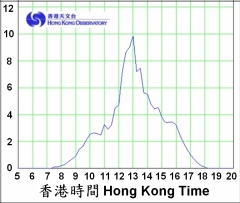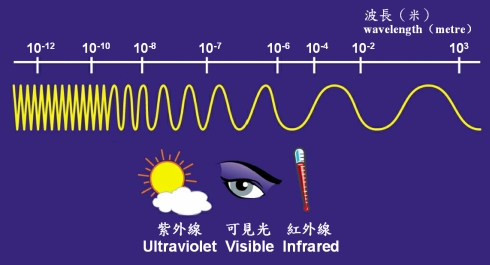Myths about protection against UV radiation
Myths about protection against UV radiation
LEUNG Wai-hung
Human exposure to UV radiation may result in acute and chronic health effects on the skin, eye and immune system. Although most people are aware of the need to take protective actions against sunburn, there are some common misconceptions about UV radiation and the ways of protection:
Myth 1: Darker sunglasses offer more protection from UV radiation
The most important thing to look for in sunglasses is how much UV radiation they filter out. It should be noted that there is no relationship between the colour of sunglasses and their UV filtering action. When one wears sunglasses the pupil widens as there is less light reaching the eye. If the sunglasses have poor UV protection, the amount of UV radiation getting into the eyes may even be greater than not wearing sunglasses at all. For adequate protection, one should wear sunglasses that are able to block at least 98% of the UV radiation.
Myth 2: You can't get sunburn on a cloudy day
Up to 80% of solar UV radiation can penetrate thin cloud cover. There are also occasions when broken clouds enhance UV radiation by reflection from their sides. For example, on 23 February 2009, the UV index reached as high as 10 at around 1 p.m. even though the sky was covered by low level broken clouds. Therefore, in case of doubt, it is advisable to check the latest UV index through radio, television, the Observatory's website and Dial-a-Weather system (1878200).

Photo showing the cloudy condition at Tsim Sha Tsuiat 1 p.m. on 23 February 2009

UV index measured on 23 February 2009
Myth 3: You can't get sunburn while in the water
Water offers only minimal protection from UV radiation. At half a metre under water, the UV radiation level is still 40% as intense as at the surface. Also, the part of body above water is additionally exposed to ultraviolet rays reflected from the water surface.
Myth 4: Sunscreen lotion protects me so I can sunbathe much longer
Sunscreen lotion should not be used to increase sun exposure time but to increase protection during unavoidable exposure. The protection provided by sunscreen lotion depends critically on their correct application. For more about sunscreen lotion and sunburn protection, please check out "Sunburn and SPF".
Myth 5: If you take regular breaks during sunbathing you won't get sunburn
UV radiation exposure is cumulative. The total health damage you get will be the sum of the effect of individual exposure. Therefore, to protect yourself the objective is to reduce exposure to UV radiation as far as practicable. This could decrease the chance of skin cancer.
Myth 6: If you don't feel the hot rays of the sun you won't get sunburn
Sunburn is caused by UV radiation which cannot be felt. The heating effect is caused by the sun's infrared radiation and not by UV radiation. Therefore, even if you don't feel the warmth, you may also get sunburn.

The electromagnetic spectrum
References:
[1] "Global Solar UV Index: A Practical Guide", World Health Organization, 2002.
[1] "Global Solar UV Index: A Practical Guide", World Health Organization, 2002.